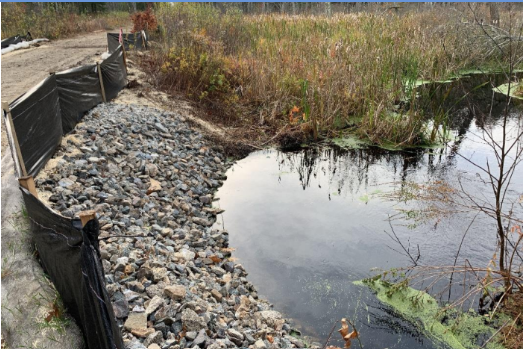
Beaver Management Program in Georgetown, Massachusetts
Through our Responsible Business Reporting US Nature Tracker, we capture programmes that preserve critical habitats across our service territory. One example of an included preservation effort is the Beaver Management Program in Georgetown, Massachusetts. Beavers play crucial roles in aquatic ecosystems to create dams and ponds, which in turn create new habitats for other animals. Beaver wetlands improve water quality and act as a carbon sink due to large amounts of vegetation, which helps to reduce global warming.
When working to replace culverts - structures that divert water past an obstacle such as pipes - colleagues realised their work would impact an existing beaver habitat. Instead of relocating the beavers or destroying their habitat, we worked with a local company to monitor the beaver habitats, behaviors and patterns. This new information enabled the installation of a ‘beaver deceiver’; a pipe within the beaver dam that allows water to flow through without allowing the beavers to impound it. We could then install the new culvert within the dam.
However, the culvert still experienced diminished flow over the years. The level of beaver activity continued to compound blockage, which made maintenance of the culvert very challenging and affected the level of flow. Over the next three years, we worked with local, state and federal agencies to replace the culverts and restore the natural flow of water. Not only did this new culvert prevent disturbance to the beavers, but it also helped to maintain natural water levels, providing better habitat opportunities for the beavers as well as for endangered turtles in the area.
Since 2021, we’ve implemented the Beaver Management Program to monitor the culverts on a yearly basis to ensure proper function.
